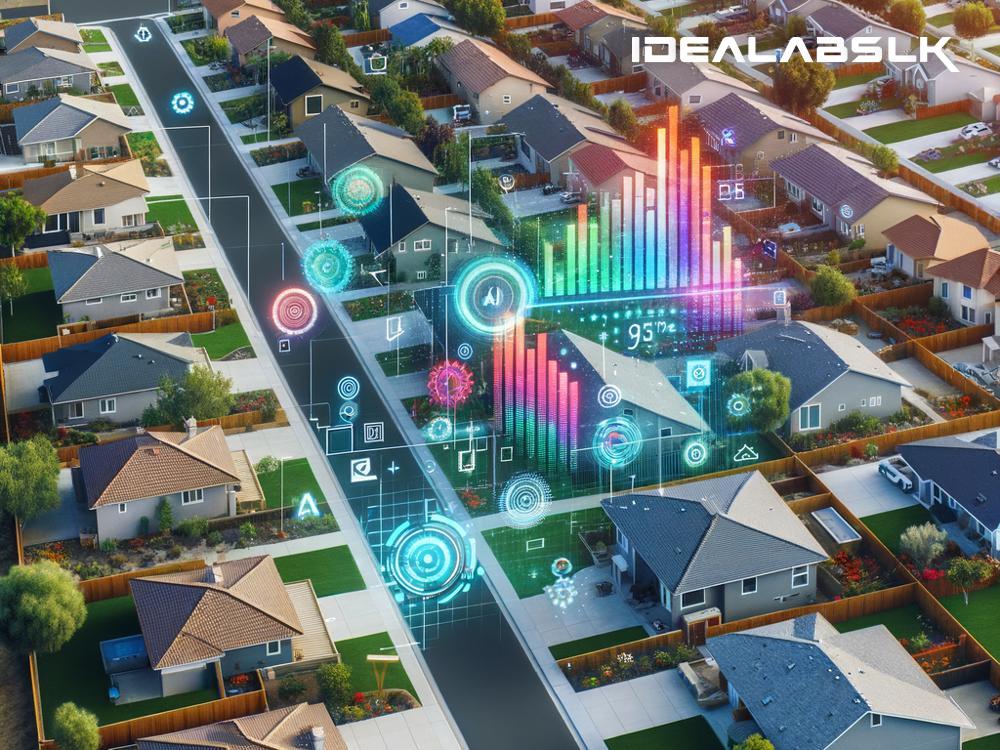AI Enhances Real Estate Demographic Analytics: A Simplified Exploration
In the world of real estate, understanding who lives where, what the community likes, and how neighborhoods evolve over time is foundational. This is where demographic analytics comes in, providing a deep dive into the socioeconomic, cultural, and economic fabric of an area. Traditional methods for gathering these insights have been manual, time-consuming, and, frankly, a bit of a guesswork game. Enter Artificial Intelligence (AI), the game-changer that's revolutionizing how we approach demographic analytics in real estate.
The Role of AI in Demographic Analytics
AI, with its ability to process and analyze large volumes of data quickly and accurately, brings precision and efficiency to demographic analytics. It sifts through heaps of data - from census information to social media patterns - to deliver comprehensive insights about who lives in a neighborhood, their preferences, and how these might change in the future.
Predictive Analysis and Personalization
One of the standout features of AI in this field is predictive analysis. This involves using current and historical demographic data to forecast future trends. For instance, if there's a rising number of young families moving into an area, real estate professionals might predict an increased demand for family homes and amenities like parks and schools in the near future.
AI takes this a step further by enabling a level of personalization previously unimaginable. Real estate agents can now offer properties and neighborhoods that match the precise needs and preferences of their clients. This isn't just about the number of bedrooms or proximity to work but can include matching lifestyle preferences, community vibes, and even predicted future developments in the neighborhood.
Strengthening Investment Decisions
For investors, demographic analytics powered by AI is a treasure trove. It allows them to identify areas with high growth potential or pinpoint neighborhoods poised to become the next big thing. By understanding demographic shifts, investors can make more informed decisions about where to channel their funds for maximum returns.
Enhancing Customer Experience
At its core, real estate is about people. With AI, agents and companies can provide a dramatically improved customer experience. Through detailed demographic insights, professionals can tailor their communication, recommendations, and services to meet the unique needs of each client. This personal touch not only impresses clients but also significantly increases the likelihood of successful transactions.
Overcoming Challenges
While AI in demographic analytics offers numerous benefits, it's not without its challenges. Privacy concerns and data security are at the forefront, with an increasing need to ensure that the data used is handled responsibly. Additionally, there's a learning curve associated with integrating AI technologies into existing systems, requiring time and investment.
However, the potential benefits far outweigh these challenges. As more real estate professionals embrace AI, the industry will likely see a shift towards more sophisticated, data-driven decision-making.
The Future is Here
We're already witnessing the integration of AI in various aspects of real estate, from virtual property tours to automated customer service systems. As AI technology continues to advance, its role in demographic analytics will only grow, providing even deeper insights and more accurate predictions.
In a nutshell, AI is transforming the way we understand communities and make decisions in real estate. By offering a detailed, predictive, and personalized view of demographic trends, AI enables real estate professionals to serve their clients better, make smarter investment decisions, and ultimately, shape the future of our neighborhoods.
Conclusion
The incorporation of AI into real estate demographic analytics is not just a trend; it's a paradigm shift. It's about making informed decisions backed by data, understanding the needs of current and future residents, and crafting communities that reflect those needs. As we move forward, AI will continue to play a pivotal role in building efficient, vibrant, and connected neighborhoods, making real estate not just about places but about people and their stories.

